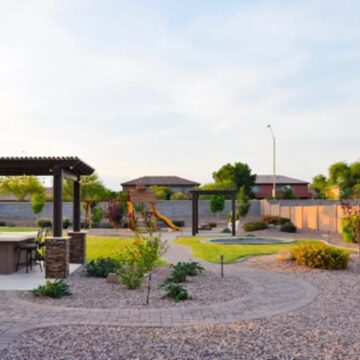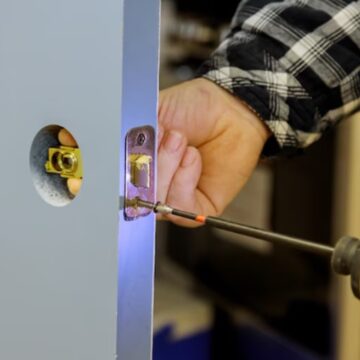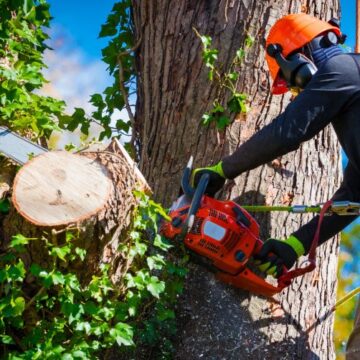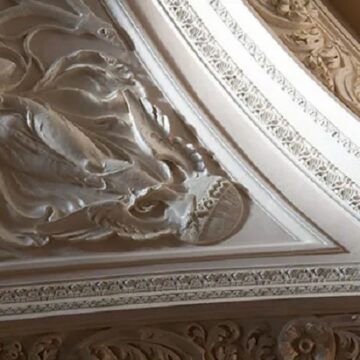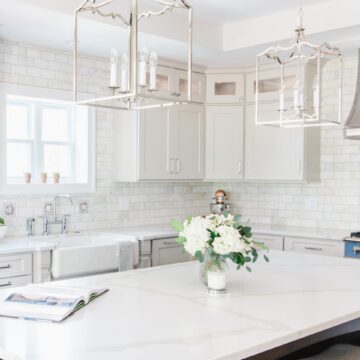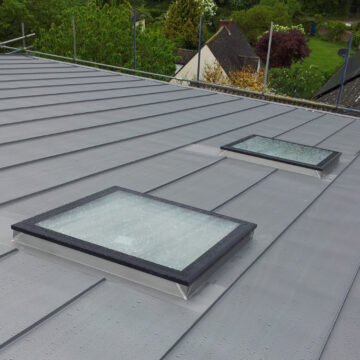When it comes to choosing the perfect countertop material for your kitchen or bathroom, durability is often at the top of the list of requirements. After all, countertops endure daily wear and tear, spills, heat, and impact. One popular option that homeowners are increasingly turning to is quartz countertops. But are quartz countertops durable? In this comprehensive guide, we will unveil the truth behind their longevity and explore why investing in quartz countertops is worth it.
Why Quartz Countertops are a Popular Choice
Before diving into the durability of quartz countertops, it’s essential to understand why they have become such a popular choice among homeowners.
- The Beauty of Quartz
Quartz countertops offer unparalleled beauty that rivals natural stone. They are available in a wide range of colors and patterns, ensuring there is a design that will complement any kitchen or bathroom style. The consistency in color and pattern in quartz slabs makes them an appealing choice for those seeking a uniform and elegant look.
- The Variety of Design Options
With quartz countertops, you have the freedom to choose from various edge profiles to customize the look of your countertop. Additionally, quartz can be manufactured to mimic the appearance of other natural stones like marble or granite, providing endless design possibilities.
- The Durability of Quartz
Now, let’s delve into the durability of quartz countertops, which is arguably one of their most significant advantages over other materials.
The Science Behind Quartz Countertops
To understand the durability of quartz countertops, it’s important to grasp the science behind their composition and manufacturing process.
- The Composition of Quartz
Unlike natural stone countertops, quartz countertops are engineered using a combination of natural quartz crystals and resin. The composition typically consists of about 90-95% quartz crystals, which are known for their exceptional hardness. These crystals are then bound together by a small percentage of resin, which acts as a binding agent.
- The Manufacturing Process
Quartz countertops are manufactured in a controlled environment using a process that involves crushing and mixing the quartz crystals with resin and pigments. This mixture is then poured into molds and compressed under high pressure to form solid slabs. The slabs are further cured and polished to achieve the desired finish.
- The Unique Properties of Engineered Quartz
The combination of natural quartz crystals and resin results in a countertop material that possesses unique properties, contributing to its durability. Engineered quartz countertops are non-porous, making them highly resistant to staining and bacterial growth. Additionally, they are less prone to cracking or chipping compared to natural stone countertops.
The Truth About Quartz Countertop Longevity
Now that we have addressed the science behind quartz countertops, let’s explore the truth behind their longevity and why they are considered a durable choice for homeowners.
- Resisting Stains and Scratches
Quartz countertops are highly resistant to stains thanks to their non-porous nature. This means that spills from common household items like coffee, wine, or oil will not seep into the surface, making them easy to clean. Additionally, quartz’s exceptional hardness makes it resistant to scratches, making it an ideal material for busy kitchens and bathrooms.
- Withstanding Heat and Impact
While quartz countertops can handle everyday heat from hot pans and pots, it’s essential to use trivets or hot pads to protect the surface from extreme temperatures. Sudden changes in temperature may cause thermal shock, resulting in potential damage. However, when properly cared for, quartz countertops can withstand daily cooking and remain resistant to impact.
- The Low Maintenance Advantage
One of the significant advantages of quartz countertops is their low maintenance requirements. Unlike natural stone countertops that require regular sealing, quartz countertops do not need to be sealed. Additionally, the non-porous surface prevents the growth of mold, mildew, and bacteria, ensuring a hygienic and easy-to-clean countertop.
Why Investing in Quartz Countertops is Worth it
Now that we understand the science and durability of quartz countertops, let’s explore why investing in them is worth it in the long run.
- A Cost-Effective Choice in the Long Run
While quartz countertops may have a higher upfront cost compared to other materials, they prove to be cost-effective in the long run. Their durability means they are less likely to incur damage or require costly repairs, saving you money in the long term.
- The High Return on Investment
In addition to their durability, quartz countertops offer a high return on investment. They are a desirable feature sought after by potential buyers, making them an attractive selling point if you ever decide to sell your home.
- The Eco-Friendliness of Quartz
Quartz countertops are also a sustainable choice for environmentally-conscious homeowners. The manufacturing process of quartz countertops utilizes recycled materials, reducing waste. Additionally, the durability and long lifespan of quartz countertops mean they won’t need to be replaced as frequently as other materials, reducing your ecological footprint.
In conclusion, quartz countertops are indeed durable and offer many advantages over other countertop materials. Their ability to resist stains, scratches, heat, and impact makes them an ideal choice for both residential and commercial applications. Furthermore, their low maintenance requirements, cost-effectiveness, and eco-friendliness make investing in quartz countertops a wise decision. So, if you’re looking for a long-lasting and beautiful countertop option, quartz should be at the top of your list.
FAQ
Question: Are quartz countertops durable? – Quartz countertops are highly durable and resistant to staining, scratching, heat, and impact. Their composition of natural quartz crystals and resin gives them exceptional hardness and makes them less prone to cracking or chipping compared to natural stone countertops.
Question: How are quartz countertops manufactured? – Quartz countertops are engineered using a combination of natural quartz crystals, resin, and pigments. The quartz crystals are crushed and mixed with resin to create a mixture that is poured into molds. The mixture is then compressed under high pressure, cured, and polished to form solid slabs.
Question: What are the unique properties of engineered quartz? – Engineered quartz countertops possess unique properties that contribute to their durability. They are non-porous, making them highly resistant to staining and bacterial growth. Additionally, they are less prone to cracking or chipping compared to natural stone countertops.
Question: How do quartz countertops resist stains and scratches? – Quartz countertops are highly resistant to stains due to their non-porous nature. Spills from common household items like coffee, wine, or oil will not seep into the surface, making them easy to clean. Additionally, quartz’s exceptional hardness makes it resistant to scratches.
Question: Can quartz countertops withstand heat and impact? – Quartz countertops can handle everyday heat from hot pans and pots. However, it is important to use trivets or hot pads to protect the surface from extreme temperatures, as thermal shock can potentially cause damage. When properly cared for, quartz countertops can withstand daily cooking and remain resistant to impact.
Question: Do quartz countertops require regular maintenance? – One of the significant advantages of quartz countertops is their low maintenance requirements. Unlike natural stone countertops that require regular sealing, quartz countertops do not need to be sealed. Additionally, the non-porous surface prevents the growth of mold, mildew, and bacteria, ensuring a hygienic and easy-to-clean countertop.
Question: Is investing in quartz countertops worth it in the long run? – Yes, investing in quartz countertops is worth it in the long run. While they may have a higher upfront cost compared to other materials, their durability means they are less likely to incur damage or require costly repairs, saving you money in the long term. Additionally, quartz countertops offer a high return on investment as they are sought after by potential buyers.
Question: Are quartz countertops eco-friendly? – Yes, quartz countertops are eco-friendly. The manufacturing process of quartz countertops utilizes recycled materials, reducing waste. Additionally, the durability and long lifespan of quartz countertops mean they won’t need to be replaced as frequently as other materials, reducing your ecological footprint.








